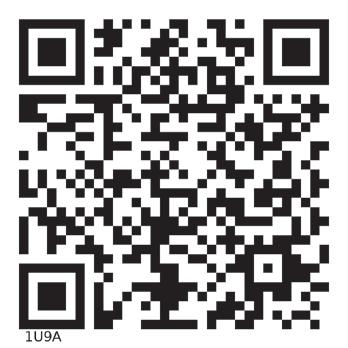
5 minute read
INEQUITIES
improve outcomes for Black and Hispanic communities, the organization said.
The Appraiser Diversity Initiative, a program led by mortgagebuying companies Fannie Mae and Freddie Mac and civil rights organization the National Urban League, is teaching new potential appraisers with a diversity of identities in an effort to close this gap.
Approaching inclusion in real estate from a wider perspective, a program through the Urban Land Institute Colorado works to train women and people of color in development. This program, called the Real Estate Diversity Initiative, aims to create urban landscapes that serve diverse communities.
“I think trust in communitybuilding is key,” Executive Director Rodney Milton said. “When developers build projects, they need community support because they’re shaping the community. And who better to be equipped to strengthen a community, to build it out, to revitalize it, then the folks who are from that community?”
Welcome to Fairhaven
Housing is a source of discrimination complaints. The Colorado Civil Rights Commission Annual report found that 14% of complaints were claims about housing issues.
Chantal Sundberg, a Black Real - tor who works in the metro Denver area, said she has not witnessed or experienced discrimination in her work with her clients, most of whom are Black.
“Everyone is treated equal, whether it’s borrowing or buying homes,” she said.
Sundberg witnessed the 1994 Rwandan genocide, when hundreds of thousands of members of a minority ethnic group called the Tutsi were murdered by members of the Hutu ethnic majority. In her eyes, although it might be important to talk about topics of racial discrimination, focusing on them too much can have unintended consequences.
“When we emphasize them so much, it creates more division rather than unity,” she said.
Still, discrimination is an ongoing concern for the National Association of Realtors and Brokers.
Sundberg said Realtors are trained to address discrimination issues.
And to Gill, the Realtor who helped Johnson sell her home, the association’s training is not enough to help all real estate agents.
“Race is a part of it, but it’s not the in-depth, you know, ‘how to understand if you’re being a racist or not,’” he said.
To address such concerns, the association released an immersive online simulation in 2020 that aims to train agents to recognize and avoid acting on their own biases.
The program is part of the association’s Fair Housing Act Plan, which leaders created to empha - size accountability and culture change. The training is meant to make housing more accessible and affordable to people of color.
A White Colorado Community Media reporter went through the online simulation, which takes place in a fictional town called Fairhaven. The simulation puts a person in the shoes of potential homebuyers who are experiencing discrimination.
One scenario is based on a federal court case, Clinton-Brown v. Hardick. In 2020, Todd Brown and Ebony Clinton-Brown filed a suit against Helene L. and John Hardick alleging violations of the Fair Housing Act and Rhode Island law.
The case claims the Hardicks noticed Clinton-Brown’s first name and asked their real estate agent if Ebony was Black. When they learned she was, the Hardicks refused to sell their property and the agent withdrew the listing upon the Hardicks’ request, ceasing communication.
Throughout the simulation, agents attempt to theoretically sell four homes within six months while coming across day-to-day happenings including the views of colleagues and encounter issues like language barriers. The simulator provides for moments of reflection in the sales process. At the end of the training, agents are given feedback.
According to Alexia Smokler of the National Association of Realtors, the organization decided to pursue the simulator after a Newsday investigation revealed alleged housing discrimination on Long Island, New York.
“We wanted to show how discrimination plays out in real life scenarios and so we drew on real fair housing cases and frequently asked questions from our members to create these simulated scenarios so they could see how discrimination looks,” Smokler said.
Scenarios in the simulation are based on true stories. They include testimonials to show discrimination from the perspective of race, disability and LGBTQ+ identities.
“We’ve had people tell us watching these videos — they’re very emotional videos — that they are in tears, that they’re angry, that they’re going to stand up for their clients and also we’ve had folks say ‘I wasn’t aware of these sorts of things are going on’ and ‘this has really opened my eyes,’” Smokler said.
Brian Arnold, who used to work with clients at Aurora Warms the Night, said training like Fairhaven could help combat discrimination. But he noted that since the Fairhaven simulation is not a mandatory step in real estate agent licensing, it is challenging to ensure people who need the training actually do it.
“For your … real estate agents that are doing well, that are maybe using discriminatory practices, how are you going to get those people to use it?” Arnold said. “Unless it’s a mandatory (program) ... then it’s just a nice program that’s out there that could help.” it remove 24 “pornographic” books that sex offenders might use to “plan their attacks.”
To bolster her demand, she cited section 18-1515 of Idaho law, which says a person is guilty of “disseminating material harmful to minors” when they knowingly loan material with detailed sexual descriptions to underage children. The 24 books she cited were all “young adult” books, and parental consent was already required before they could be checked out.
In a city as big as Nampa, with over 100,000 residents, you’d think one person’s demands would at least require a hearing before action is taken, yet the school board removed all 24 books “forever.” As it turned out, only 23 books were taken off the shelves because one young adult book on the list had never been bought.
There was no formal review, infuriating some parents who championed free speech and free choice. A month later, they joined students and teachers outside the Nampa school district offices to protest the bans.
Laura Delaney, who owns Rediscovered Books in nearby Boise, fought back against censorship by giving away 1,500 of the banned books — donated by concerned citizens — to Nampa students and teachers.
“These books are written be - cause authors are trying to figure out the world, and having them share their wisdom with people of all generations and backgrounds makes a difference,” Delaney told reporters.
Then the Idaho state Legislature jumped on the controversy. Last year, House Republicans passed HB 666 to hold librarians “criminally liable” for distributing material considered “harmful to minors.”
“I would rather my 6-year-old grandson start smoking cigarettes tomorrow than get a view of this stuff at the public library or anywhere else,” said Rep. Bruce Skaug, R-Nampa.
A misdemeanor conviction for disseminating harmful materials includes up to one year in jail and a $1,000 fine. Many librarians found the law terrifying; some quit their jobs or changed careers.
The “Idaho library community has lost some good people due to the conflicts centered mostly around book challenges,” state librarian Stephanie Bailey-White told me.
Thankfully, Idaho’s Senate re - fused to give the anti-librarian bill a hearing. But lawmakers found another way to punish libraries: They cut $3.8 million from this fiscal year’s original $11.5 million budget for the Commission for Libraries.
Idaho’s library budget cuts have now made it harder for libraries to stock new books and expand telehealth services for seniors and rural residents. Lawmakersalso defunded a statewide e-book program managed by the Idaho Commission for Libraries.
Book banning campaigns aren’t new in America, but last year the American Library Association said that library staff faced an “unprecedented number of attempts to ban books.”
The organization said the books most targeted were those about Black or LGBTQIA people. The Bible was not on anyone’s list.
Crista V. Worthy is a contributor to Writers on the Range,writersontherange.org, an independent nonprofit dedicated to spurring lively conversation about the West. She lives in Idaho.








